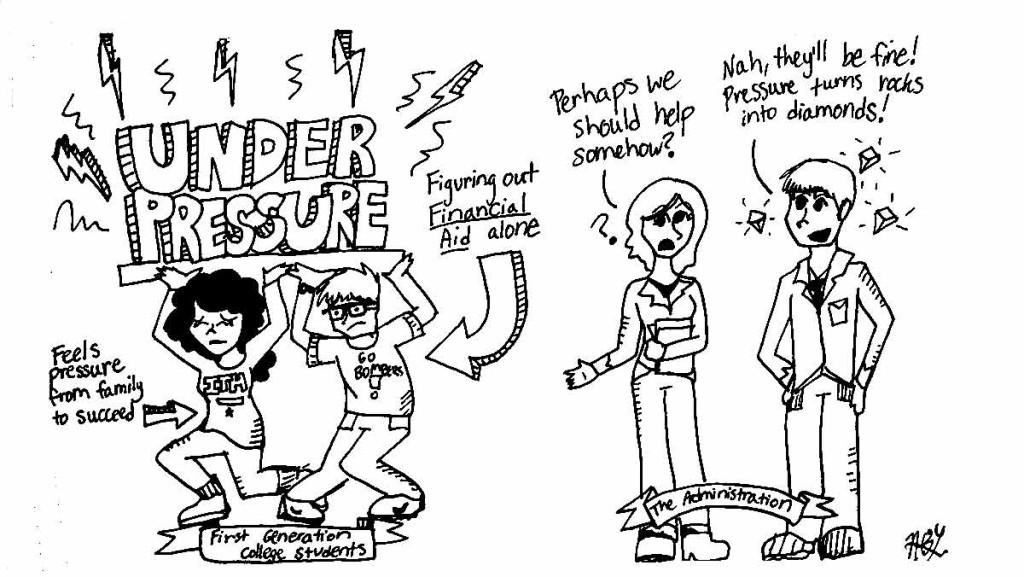College may be a unique experience for everyone, but for first-generation students, it is especially distinct. As the first members of their families to attend college, they have limited parental guidance when it comes to maneuvering the ins and outs of higher education. In addition, first-generation students often feel immense pressure from their families to succeed. It is for these reasons that Ithaca College should seriously consider implementing programs for first-generation students that will provide them with a sense of support in the college environment.
A number of universities and colleges across the country maintain special programs for first-generation students, including First Generation Connect at Boston University, which provides workshops and social events to help build a community among students who are experiencing this particular college situation. Syracuse University also has a program for first-generation students in which students can talk about and document their experience as the first member of their family to attend college. Both of these programs work to develop a kind of support group for these students to offer them aid in maneuvering the higher education system in ways that their family members may not be able to.
The college hosts several programs and organizations that help students of shared backgrounds build a community together in which they can make friends and seek support. From campus religious groups like Hillel, the Protestant Community and the Catholic Community to residential programs like the First-Year Residential Experience and Housing Offering a Multicultural Experience, there are specific places where students can find others who may share similar interests or values. However, first-generation students are left out of this mix, when they may be the ones to benefit the most from a supportive and organized community like this.
The stress of paying for tuition, student loans and applying for scholarships combined with the added pressure of schoolwork, extracurricular and co-curricular activities, while maintaining mental and physical health, all while adjusting to the college way of life is a lot to put on a young adult’s shoulders, especially those whose family members are not necessarily able to relate to the stress. These students deserve to have a program and a community that can provide them with the support that every student needs.














